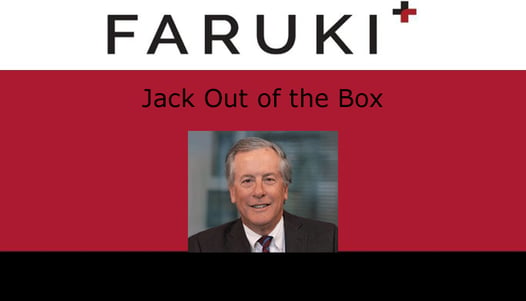- January 4, 2024
- Jack Greiner
- Jack Out of the Box
 Cedar Point Amusement Park is likely not amused by a recent Ohio Supreme Court case finding that the park's police force is subject to the Ohio Public Records Act. The park contended that the force was a private entity, such that its records were not available for public inspection.
Cedar Point Amusement Park is likely not amused by a recent Ohio Supreme Court case finding that the park's police force is subject to the Ohio Public Records Act. The park contended that the force was a private entity, such that its records were not available for public inspection.
Three television stations brought the action seeking release of the records. In August 2021, a guest at Cedar Point was allegedly injured near the Top Thrill Dragster ride and TV station WKYC sent a public records request to the Cedar Point Police Department asking for records related to the incident. At the same time, the TV stations had been investigating sexual assaults that allegedly occurred at Cedar Point employee housing beginning in April 2017. In March and June 2022, WTOL and WBNS sent public-records requests to the CPPD asking for records related to the alleged assaults. Cedar Point refused to produce the records.
In the Supreme Court case, Cedar Point argued that it pays for the officers' salary, equipment and training, and has agreed to indemnify the city of Sandusky (where the park is located) for any liabilities incurred by the officers. In Cedar Point's view, this made the force a private entity.
But in rejecting this argument, the Supreme Court noted that a Sandusky ordinance provides that the city manager shall appoint private police officers when requested by a person or business in Sandusky. They "shall have the same powers and be subject to the same regulations as other police officers" and "shall perform such police duties at such place or places within the City limits as the person, firm, or corporation requesting their appointment may direct; however, such duties shall not be contrary to or inconsistent with the laws or the City ordinances." Private police officers in Sandusky must be qualified as Ohio peace officers by the Ohio Peace Officer Training Commission.
In other words, the Cedar Point police look and act like cops. The fact that a private entity pays them is not determinative. As the Supreme Court concluded, "the CPPD is the functional equivalent of a public institution. At the time of the public-records requests, the CPPD was serving as the police department for the employees and guests of Cedar Point. It does much more than just provide security for Cedar Point. Enforcing criminal laws is a core government function. . . . [O]rganizations made up of 'sworn, state certified police officers who exercise plenary police power' exercise 'one of the most fundamental functions of government,' . . . the CPPD serves as the functional equivalent of a public office in regard to its police duties. When it performs these duties, the CPPD acts as the functional equivalent of a public institution and must respond to valid public-records requests related to those duties."
This seems like an obvious conclusion, especially considering that the Supreme Court had made a similar ruling just a few years before in a case involving the police force at Otterbein University. The only problem with the Supreme Court's ruling is that it declined to award the TV stations' attorney fees. Ohio law provides that requesting party who wins an action seeking public records is entitled to recover its attorney fees incurred in litigating the case. This makes sense, given that in many cases, a party might opt not to pursue records due to the cost of a lawyer. Awarding fees in these cases encourages government transparency.
A party who refuses to produce records can avoid paying fees if (1) based on the law as it existed at the time, a well-informed person responsible for the requested public records would have reasonably believed that [the Public Records Act] did not require their disclosure and (2) a well-informed person responsible for the requested public records would have reasonably believed that withholding the records would serve the public policy that underlies the authority asserted for withholding the records. It's hard to see how Cedar Point satisfied either prong here. A well informed person would know about the Otterbein precedent, and it's hard to see how withholding records serve the public policy of transparency that underlies the Public Records Act. Chief Justice Kennedy wisely dissented from the decision not to award attorney fees. Unfortunately, she couldn't convince enough of her colleagues to see the light.
A partial victory this time for the public. Maybe next time, the Court will deliver a complete win.
